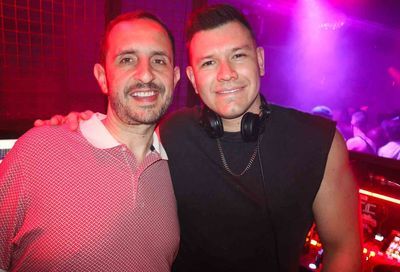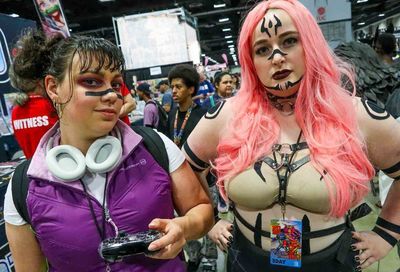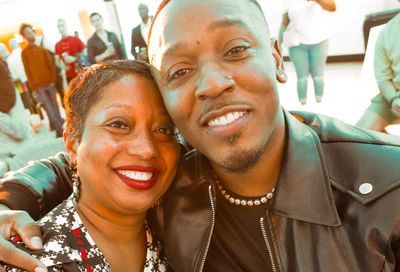Last month, Bully was fighting for its life. After being handed an R rating by the Motion Picture Association of America — effectively ruining any chance that an underage audience could see the teen-bullying documentary — director Lee Hirsch and subjects from the movie visited Washington to urge the powers-that-be to change their decision.
“It’s insulting,” Kelby Johnson, a teenage lesbian from Oklahoma who appears in the film, said before the MPAA forum in March. “It really sucks that they’re trying to censor our reality and what we go through every day.”

Kelby Johnson and Lee Hirsch photographed in Washington, D.C., on Thursday, March 15
(Photo by Todd Franson)
A lot has since changed. On March 26, The Weinstein Company announced it would release Bully without a rating. Days later, bolstered by an online petition signed by 500,000 supporters, Weinstein and the MPAA finally made a deal: Bully would cut three of its six profanities, and in return it would get its coveted PG-13 rating. And early returns suggest that agreement will be success: The documentary only opened in a select few theaters last Friday, but earned the weekend’s highest per-theater box-office sales.
While Hirsch didn’t exactly predict that grassroots success while sitting in the Ritz-Carlton in Georgetown a month ago, he did note how the short-lived Hollywood battle could prove to be a blessing in disguise.
“I think what’s really cool is the thousands of people who’ve supported it. Through [the Human Rights Campaign], something like 60,000 letters were written,” Hirsch says. Our film is raising awareness, but it’s also a vehicle for all the people who’ve been bullied that’ve never had any help. This film is a vehicle for all those people who’ve shared in that silence and shame.”
Hirsch knows that silence and shame well. Bullied often as a child, he decided to take on the project three-and-a-half years ago, calling it “a piece of my life that I carried around, part story I wanted to tell, part emotional baggage.”
“Once we started, it felt like there was so much urgency and need out there to do it,” he says. “I think a big piece of it was to give validity, to give a voice, create a sort of undeniability around bullying.”
Johnson, who was shunned by her Oklahoma town after coming out, learned about Bully after her mother wrote to Ellen DeGeneres’s message board to tell her daughter’s story. Through DeGeneres’s staff, Hirsch contacted Johnson and asked permission to film her. She immediately agreed.
“I’ve always wanted to do something and Lee gave me the opportunity,” Johnson says. “He helped me get to the place I wanted to be, making a change, helping people, not being scared to speak my mind and to speak up and say something.”


















